The Providence College Humanities Forum FA2023

Fall 2023 Schedule of Events
The Humanities Forum is an opportunity for members of the Providence College community to engage regularly in intellectual life outside of the classroom, deepen their appreciation for the humanities, and explore diverse perspectives from on and off campus. All are welcome.
If you do not have a Providence College email address, you may request to receive our regular email announcements by sending an email to pbelcher@providence.edu.
September 8, 2023
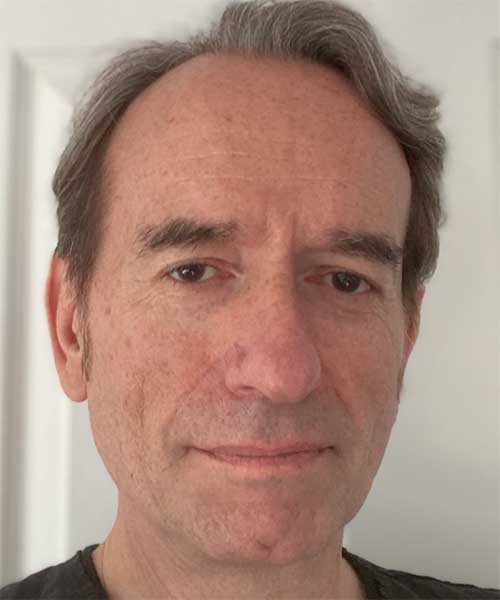
“The Trivium in the 21st Century”
Martin Robinson
Director, Trivium 21c Ltd.
Professor, Academica University of Applied Sciences, Amsterdam
What kind of education do you need to thrive in the 21st century? That question is the subject of much debate today. But, Martin Robinson argues, the secret to a great education for the 21st century can be found in a surprising place. By looking at the insights of the ancients and contemporary thinkers, Robinson argues for reclaiming the medieval “trivium” for contemporary times…
Read more about this event.
Martin Robinson is an advocate for the great tradition of liberal arts education. He is a former theatre and English teacher, working for over twenty years in London state schools. He was a member of senior leadership teams, and an advanced skills teacher.
Through his consultancy work he works closely with a variety of schools on curriculum design and delivers keynote lectures on curriculum, culture, and creating. As a professor he leads policy and research on curriculum and assessment for Academica University.
A regular on the conference circuit both in the U.K. and internationally, Martin’s talks are challenging, entertaining, and sure to get people talking and reflecting on their practice.
September 15, 2023
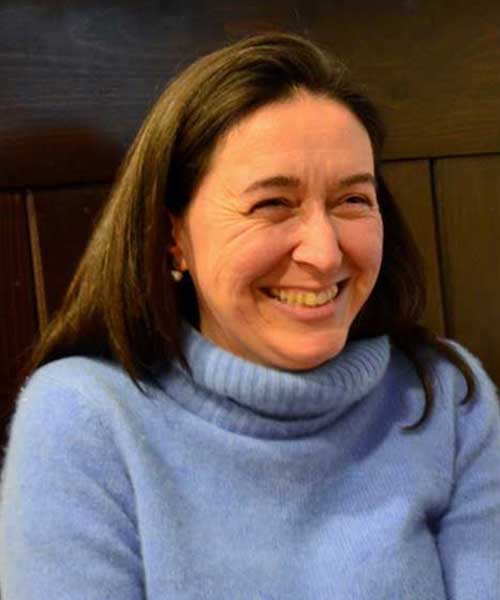
“Lost in Thought: The Hidden Pleasures of an Intellectual Life”
Zena Hitz
Tutor, St. John’s College
In an overloaded, superficial, technological world, in which almost everything and everybody is judged by its usefulness, where can we turn for escape, lasting pleasure, contemplation, or connection to others? Today, when even the humanities are often defended only for their economic or political usefulness, Zena Hitz says our intellectual lives are valuable not despite but because of their practical uselessness. Drawing on inspiring examples, from Socrates and Augustine to Malcolm X and Elena Ferrante, and from films to Hitz’s own experiences as someone who walked away from elite university life in search of greater fulfillment, she offers a passionate and timely reminder that a rich life is a life rich in thought.
Read more about this event.
Zena Hitz is a tutor at St John’s College and the author of Lost in Thought: The Hidden Pleasures of an Intellectual Life. Her book explores the meaning and the value of learning for its own sake, through images and stories of bookworms, philosophers, scientists, and other learners, both fictional and historical. She spent three years living and working in the Madonna House Apostolate and has taught in prison programs and to other non-traditional students. When she is not teaching or speaking she spends time thinking about topics like the moral decline and fall of individuals and communities, as depicted in stories from Genesis to The Godfather.
September 22, 2023
Sponsored by the Jack Miller Center
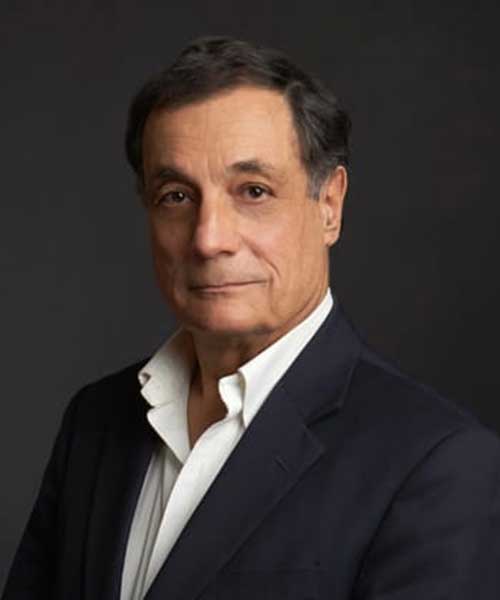
“What Should You Do if You Think the Supreme Court Is Wrong?”
Shep Melnick
Professor of American Politics, Boston College
Co-chair of the Harvard Program on Constitutional Government
For decades conservatives have strenuously disagreed with Supreme Court rulings on abortion, affirmative action, aid to religious schools, rights of the accused, capital punishment, and much more. Today many liberals are so distressed with the Court’s decisions on abortion, affirmative action, and executive power that they have supported efforts to “pack” the Court by increasing the number of Justices. How should we think about these disputes? Is a Court that overturns precedent “not normal,” as President Biden suggested? Or does this happen all the time? How should those who disagree with Court decisions respond?
Read more about this event.
R. Shep Melnick is the Thomas P. O’Neill, Jr. Professor of American Politics at Boston College and co-chair of the Harvard Program on Constitutional Government. He is author of Regulation and the Courts: The Case of the Clean Air Act (Brookings, 1984), Between the Lines: Interpreting Welfare Rights (Brookings, 1994), The Transformation of Title IX: Regulating Gender Equality in Education (Brookings, 2018), and most recently The Crucible of Desegregation: The Uncertain Search for Equal Educational Opportunity (University of Chicago Press,2023. He has served as president of the New England Political Science Association and an elected member of the New Hampshire House of Representatives. He received both his B.A. and Ph.D. from Harvard.
September 29, 2023
In collaboration with The C. S. Lewis Fellowship
Co-sponsored by the School of Nursing and Health Sciences

R.E. Havard: What C.S. Lewis’s Physician Teaches Us about the Medical Imagination
Sara O’Dell
M.D.-Ph.D. candidate, University of California, Irvine
Often called the “medical Inkling,” R.E. Havard was a Catholic writer, physician, and one of C.S. Lewis’s closest friends. This lecture explores the life and writings of this often-overlooked literary doctor, considering not only his profound influence on C.S. Lewis, but also revealing the riches of his medical imagination. In making room for the soul, Havard’s holistic vision of health articulates a Christian response to mental illness, as well as recognizes the healing power of literature and the arts…
Read more about this event.
Sarah O’Dell is an M.D.-Ph.D. candidate at the University of California, Irvine, where she is the first to complete a Ph.D. in English within a dual M.D.-Ph.D. program. As a future physician-scholar and psychiatrist, she is passionate about how the activity of the imagination — as shaped by literature, faith, and the arts — helps to heal the mind. Reflecting this core interest, her dissertation research presents the first combined study of the early gothic novel, religious studies, and the history of psychiatry. She is also an active C.S. Lewis and Inklings scholar, with a particular focus on Lewis’s friend, physician, and fellow Inkling R.E. Havard. Her current book project — The Medical Inkling — explores Havard’s roles as a physician, Inkling, and Catholic writer, as well as reveals how his medical imagination influenced C.S. Lewis. Her research has previously appeared in Mythlore, VII: Journal of the Marion E. Wade Center, and the Journal of Medical Humanities. She is a recent Harvey Fellow as well as a recipient of the 2023 Andrew Vincent White and Florence Wales White Graduate Student Scholarship.
October 13, 2023
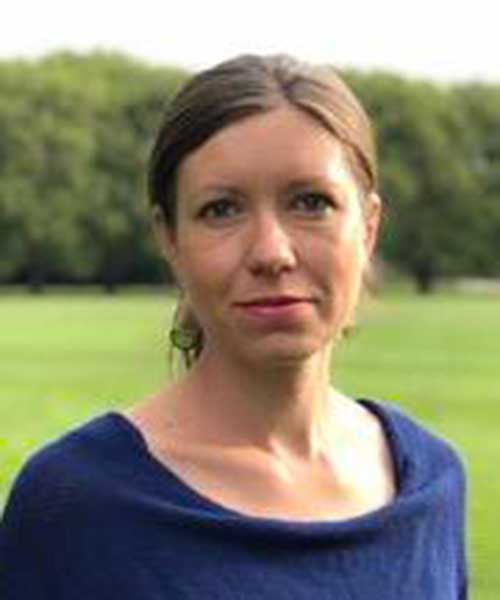
Seeing Theatre: The Phenomenology of Classical Greek Drama
Naomi Weiss
Professor of Classics, Harvard University
Friday, September 15 at 3:30 p.m.
Ruane Center for the Humanities 105
The ancient Greek theatron was literally “the place for seeing.” In this talk, Professor Weiss will explore how frequently classical Greek drama exposes and interrogates the spectator’s own viewing experience. Drawing on a range of textual and visual evidence, she will argue that, by making the representational machineries of their productions intelligible and available, Greek tragedy, comedy, and satyr play invite their audiences to participate in the production of meaning.
Read more about this event.
Naomi Weiss is professor of classics at Harvard University, where she has been teaching since 2014. She received her B.A. and master’s from the University of Oxford and her Ph.D. from the University of California, Berkeley. Much of her research has centered on the performance of archaic and classical Greek poetry, especially tragedy. Her first book, The Music of Tragedy: Performance and Imagination in Euripidean Tragedy was published by the University of California Press in 2018. She has co-edited two volumes: Genre in Archaic and Classical Greek Poetry: Theories and Models (Brill 2019) and Music and Memory in the Ancient Greek and Roman Worlds (Cambridge University Press 2021). Her second monograph, which has just been published, bears the same title as her talk: Seeing Theater: The Phenomenology of Ancient Greek Drama (University of California Press 2023).
October 27, 2023
Co-sponsored by the School of Nursing and Health Sciences
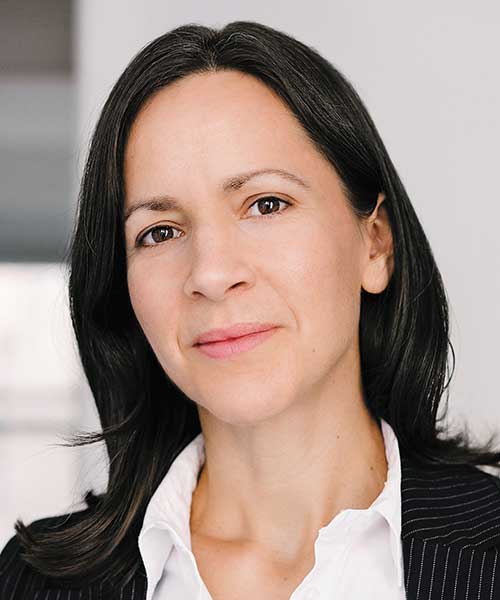
Members of the Providence College community can view Dr. Dugdale’s talk by following this link.
Bring Back Hippocrates: Oath Taking and the Morality of Medicine
Lydia Dugdale
Professor of Medicine, Columbia University Vagelos College of Physicians and Surgeons
Director, Center for Clinical Medical Ethics
No doctor in the United States today swears the Hippocratic Oath in its original form. Does this matter for the care of sick and vulnerable patients? What happens to the practice of medicine if its practitioners lack foundational commitments? This lecture will explore these questions using physician-assisted suicide and euthanasia as test cases.
Read more about this event.
L. S. Dugdale, M.D., MAR, is professor of medicine at Columbia University Vagelos College of Physicians and Surgeons and director of the Center for Clinical Medical Ethics. She also serves as co-director of clinical ethics at Columbia’s NewYork-Presbyterian Hospital. A practicing internist, her scholarship focuses on end-of-life issues, the role of aesthetics in teaching ethics, moral injury, and the doctor-patient relationship. She edited Dying in the Twenty-First Century (MIT Press, 2015) and is author of The Lost Art of Dying (HarperOne, 2020), a popular press book on the preparation for death. Dugdale attended medical school at the University of Chicago, completed residency training at Yale-New Haven Hospital, and holds a MAR in ethics from Yale Divinity School.
November 3, 2023
In collaboration with The Frederick Douglass Project
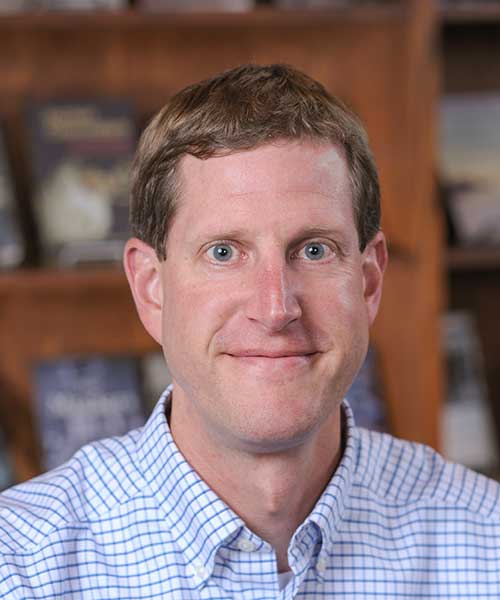
The Peg-Legged Abolitionist Who Wrote the U.S. Constitution
Dennis Rasmussen
Professor of Political Science and Hagerty Family Fellow
Maxwell School of Citizenship and Public Affairs
Syracuse University
Strikingly few Americans know who wrote the Constitution. Even fewer know that he was a peg-legged ladies’ man with a wicked sense of humor, a staunch opponent of slavery, and an unabashed elitist. Although he is little known today, Gouverneur Morris was a dominant figure at the Philadelphia Convention of 1787. In fact, he spoke more often, proposed more motions, and had more motions adopted than any other delegate. He also put the Constitution into its final form, choosing the arrangement and much of the wording of its provisions, not to mention composing the famous preamble (“We the people of the United States …”) nearly from scratch. Dennis Rasmussen will explore the constitutional vision of this fascinating, neglected, and influential American.
Read more about this event.
Dennis C. Rasmussen is professor of political science and the Hagerty Family Fellow at Syracuse University’s Maxwell School of Citizenship and Public Affairs. His research focuses on the Enlightenment, the American founding, and the virtues and shortcomings of liberal democracy and market capitalism. He is the author of five books, including The Infidel and the Professor: David Hume, Adam Smith, and the Friendship That Shaped Modern Thought, which was shortlisted for the Ralph Waldo Emerson Award; Fears of a Setting Sun: The Disillusionment of America’s Founders, which was named a best politics book of the year in the Wall Street Journal; and, most recently, The Constitution’s Penman: Gouverneur Morris and the Creation of America’s Basic Charter.
November 10, 2023
In collaboration with Disputatio
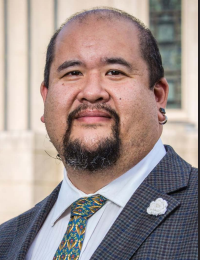
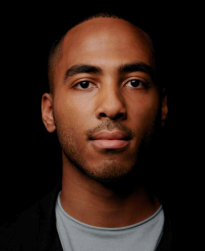
Should we pursue a colorblind society? A Disputation
David Embrick
Associate Professor, University of Connecticut
Coleman Hughes
Writer and Podcaster
This disputation will explore the following question: “Would it be just for America to pursue a colorblind society?” Hughes will take the “yea” position and Embrick will take the “nay” position. Audience members will have the opportunity to present their own questions to the speakers.
Read more about this event.
David Embrick is Associate Professor in Sociology and Africana Studies at the University of Connecticut. He is also director of Research on Resilient Cities, Racism, and Equity at UConn and coeditor of the recent book, Protecting Whiteness: Whitelash and the Rejection of Racial Equality.
Coleman Hughes is a writer whose work has been featured in the New York Times, the Wall Street Journal, and other publications. He is the host of the podcast Conversations with Coleman, and his forthcoming book is entitled The End of Race Politics: Arguments for a Colorblind America.
November 17, 2023
St. Albert the Great Lecture in Science and the Humanities
(In honor of Louis Verza)
Co-sponsored by the School of Nursing and Health Sciences
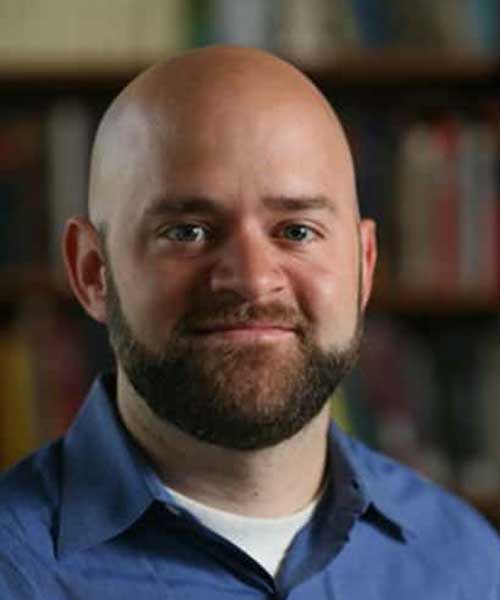
What It Means to Be Human: The Case for the Body in Public Bioethics
O. Carter Snead
Professor of Law
Director, de Nicola Center for Ethics and Culture
Concurrent Professor of Political Science
University of Notre Dame
The natural limits of the human body make us vulnerable and dependent on others. Yet law and policy concerning biomedical research and the practice of medicine frequently disregard these stubborn facts. What It Means to Be Human makes the case for a new paradigm, one that better reflects the gifts and challenges of being human, in all its fullness and complexity. It proposes a framework for public bioethics rooted in a vision of human identity and flourishing that supports those who are profoundly vulnerable and dependent―children, the disabled, and the elderly.
Read more about this event.
Carter Snead is one of the world’s leading experts on public bioethics – the governance of science, medicine, and biotechnology in the name of ethical goods. His research explores issues relating to neuroethics, enhancement, human embryo research, assisted reproduction, abortion, and end-of-life decision-making.
December 1, 2023
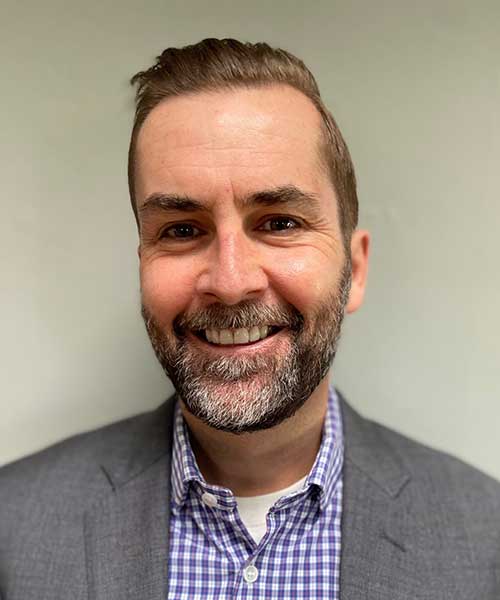
Members of the Providence College community can view Dr. Rose’s talk by following this link.
A World After Liberalism
Matthew Rose
Director, Barry Center on the University and Intellectual Life
Senior Fellow, The Morningside Institute
Liberalism shaped the Western modern world, seemingly with massive success. But today, in a time of unprecedented material prosperity and individual rights, the liberal order seems to be falling to pieces. To better understand our “postliberal” moment, Matthew Rose examines some of the ideas of the “radical right” in the 20th century. When we take these controversial intellectual movements seriously, he argues, we see how they share certain religious aspirations and anxieties that still shake our world today.
Read more about this event.
Matthew Rose is senior fellow and director of the Barry Center on the University and Intellectual Life. A scholar of religion, Matthew was previously executive director of the Berkeley Institute and Ennis Fellow in Humanities at Villanova University, where he taught courses in philosophy, politics, and literature. He received his Ph.D. from the University of Chicago after receiving his M.A. from the University of Notre Dame. He is the author of A World After Liberalism (Yale, 2021) and Ethics with Barth (Ashgate, 2010), as well as of articles in Political Theology, The Thomist, Logos, Pro Ecclesia, Studies in Christian Ethics, Journal of Catholic Moral Theology, First Things, National Affairs, Public Discourse, and The Weekly Standard.





